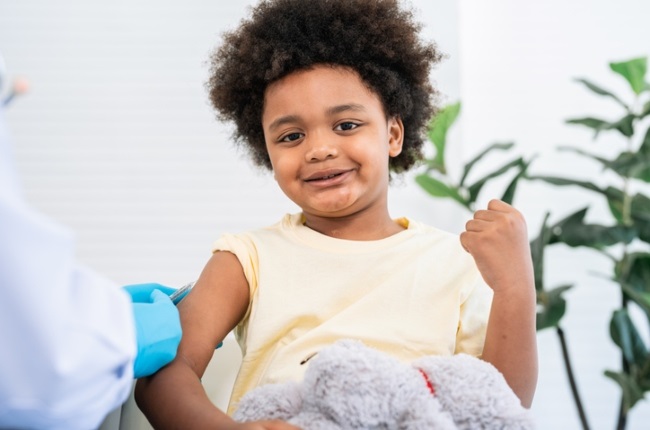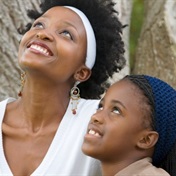
It’s something that can save lives, it’s often free and readily available and yet so many people aren’t doing it.
Vaccines are critical in destroying disease but it’s becoming a global problem that people aren’t vaccinating their kids – so much so that the World Health Organisation (WHO) has named “vaccine hesitancy” one of the top 10 threats to global health.
People who aren’t getting their kids vaccinated are undoing a lot of the good work done over the past few decades to get rid of diseases such as measles and polio almost completely. They’re also putting their kids and others at risk.
Vaccines prevent at least 2-3 million deaths each year, and the WHO believes another 1,5 million lives could be saved if more people were immunised.
So why are people not getting their kids vaccinated if it could save lives?
Some of it has to do with parents believing a claim made more than 20 years ago that there was a link between vaccines and autism.
Even though it was proven to be false – and the doctor who did it lost his medical licence – some parents still believe vaccines will harm their children.
In many communities too little knowledge about the need for vaccines is also causing problems.
Nozizwe*, a mother of a one-year-old baby girl, is one of the moms who is unsure whether to vaccinate her daughter.
“She’s my miracle child– I had her after so many doctors, for so many years, told me I’d never be able to have children. You can imagine my joy when I eventually gave birth to my heathy baby and the thought of losing her torments me because of the miracle she is.
“At church, a lady told me that vaccines are bad for children and that no mother should even consider vaccinating their child. She said a good diet is what protects your child’s immune system and makes them strong enough to fight off any diseases. After that, I got very scared.”
Read more | Your pregnancy and the measles outbreak – Doctor Tshume explains what expectant moms need to know
Nozizwe says she just wants to make sure she’s doing the best she can for her baby but she’s found it hard to find answers.
“I was so afraid at first because the nurses at the clinic can be very rude and impatient but now they know me as the ‘inquisitive one’ because I’m always asking questions and asking for pamphlets.
“They need to understand that they are trained for this but I’m not and sometimes they take what they know for granted, thinking we all know.”
It’s important to gather as much information as possible about vaccines and other health issues, Nozizwe says. She then passes it on to her sister who looks after her baby when she’s at work.
“I always share the information I get at the clinic with her so that she’s more equipped to look after my baby. We are constantly learning and growing.”
Nozizwe’s story is a familiar one, according to medical doctor and health advocate Dr Sivuyile Madikana, and he’d like to set the record straight. “I just need to emphasise how important it is to vaccinate your child because there are some diseases that a good diet cannot fight off,” he says.
“Parents want the best for their children and that’s why more awareness needs to be raised when it comes to vaccines – what they are and what they do, as well as the dangers of not vaccinating your children.”
He urges people to ask doctors and nurses questions about the things they’re not sure of because it could mean the difference between life and death.
“It pains me that there are some parents who choose not to vaccinate their children. They’re not only putting their kids in danger but other people’s children as well – and the community at large too,” he says.
Read more | Shigella a sign of things to come as world sees increase of highly contagious XDR bacteria and AMR
This greater risk for the wider community is due to something called herd immunity. This is a form of indirect protection from infectious disease that occurs when a large percentage of a population have become immune to an infection.
If some members of the community aren’t protected, the protection of the group is weakened.
“This immunity provides a measure of protection for individuals who aren’t immune, as the chains of infection are likely to be disrupted, which stops or slows the spread of disease,” Dr Madikana explains.
“The greater the proportion of individuals in a community who are immune, the smaller the probability that those who aren’t immune will come into contact with an infectiousindividual.”
The bottom line is this – the more people who are vaccinated, the better it is for everyone’s health.
*Not her real name.
“A vaccine is a type of medicine that trains the body’s immune system to fight a disease it hasn’t come into contact with before,” explains medical doctor and health advocate Dr Sivuyile Madikana.
“Vaccines are designed to prevent a disease rather than treat it once you’ve caught it.
They contain the same germs that cause disease – for example the Hib (Haemophilus influenzae type B) vaccine contains Hib bacteria – but they have either been killed or weakened to the point that they don’t make you sick.
“The vaccine stimulates your immune system to produce antibodies, exactly like it would if you were exposed to the disease. After getting vaccinated, you develop immunity to that disease without having to get the disease first. This is what makes vaccines such powerful medicine.”



















